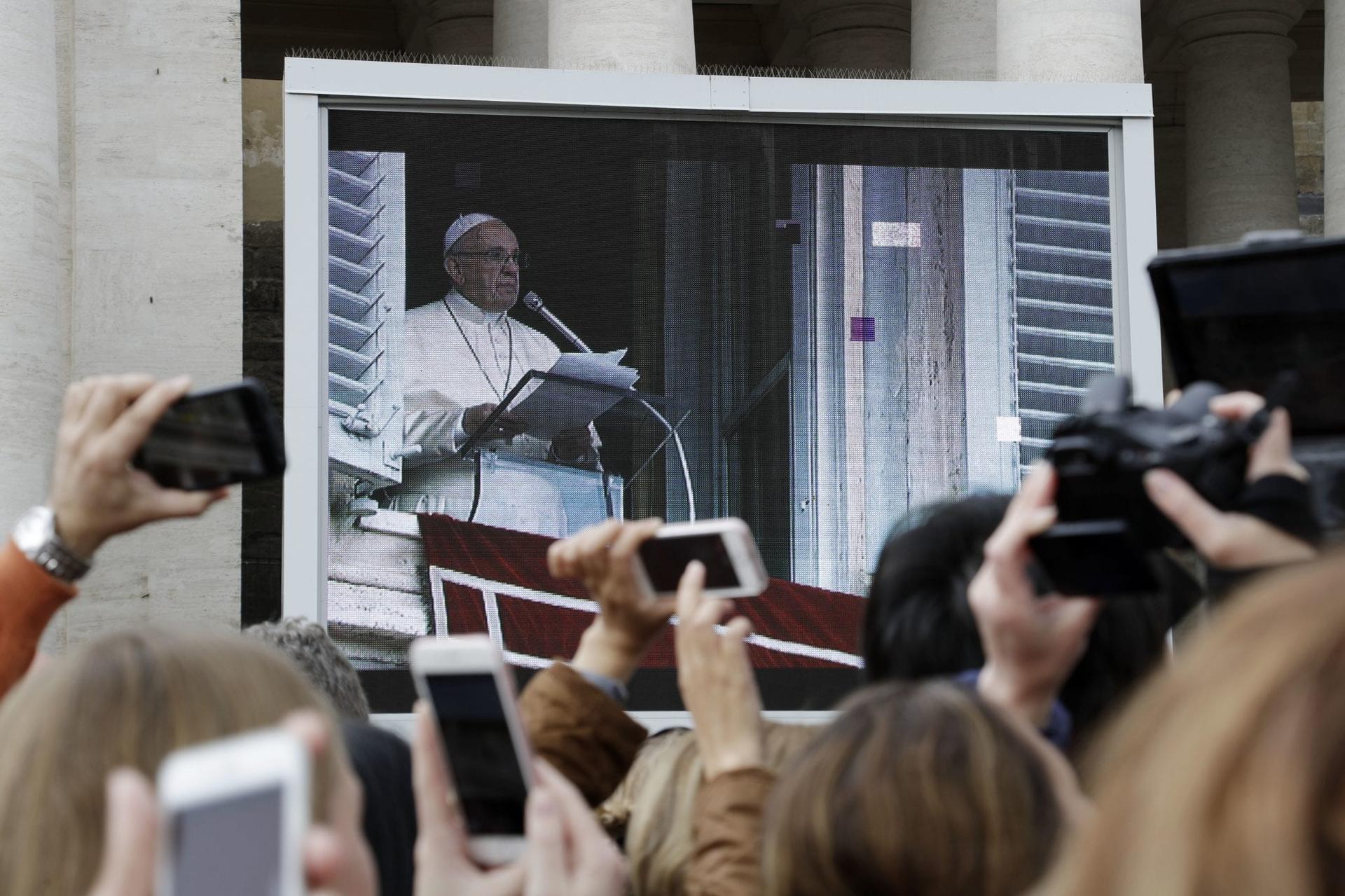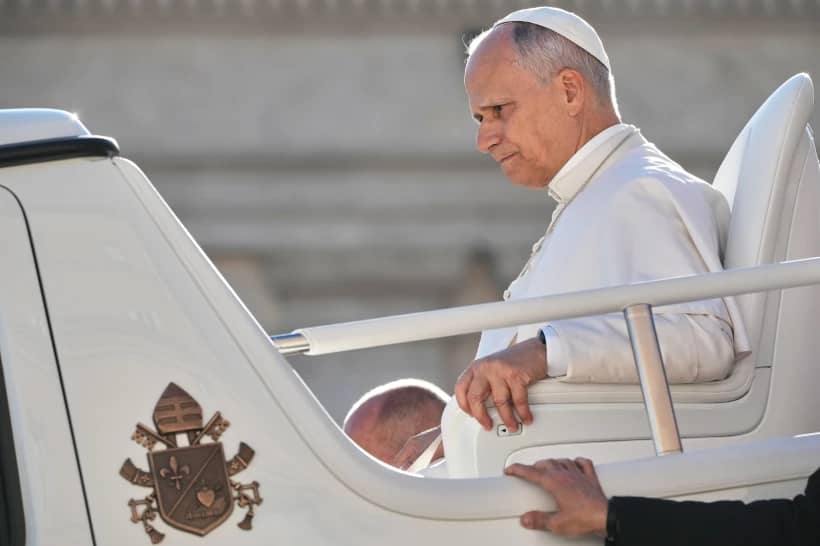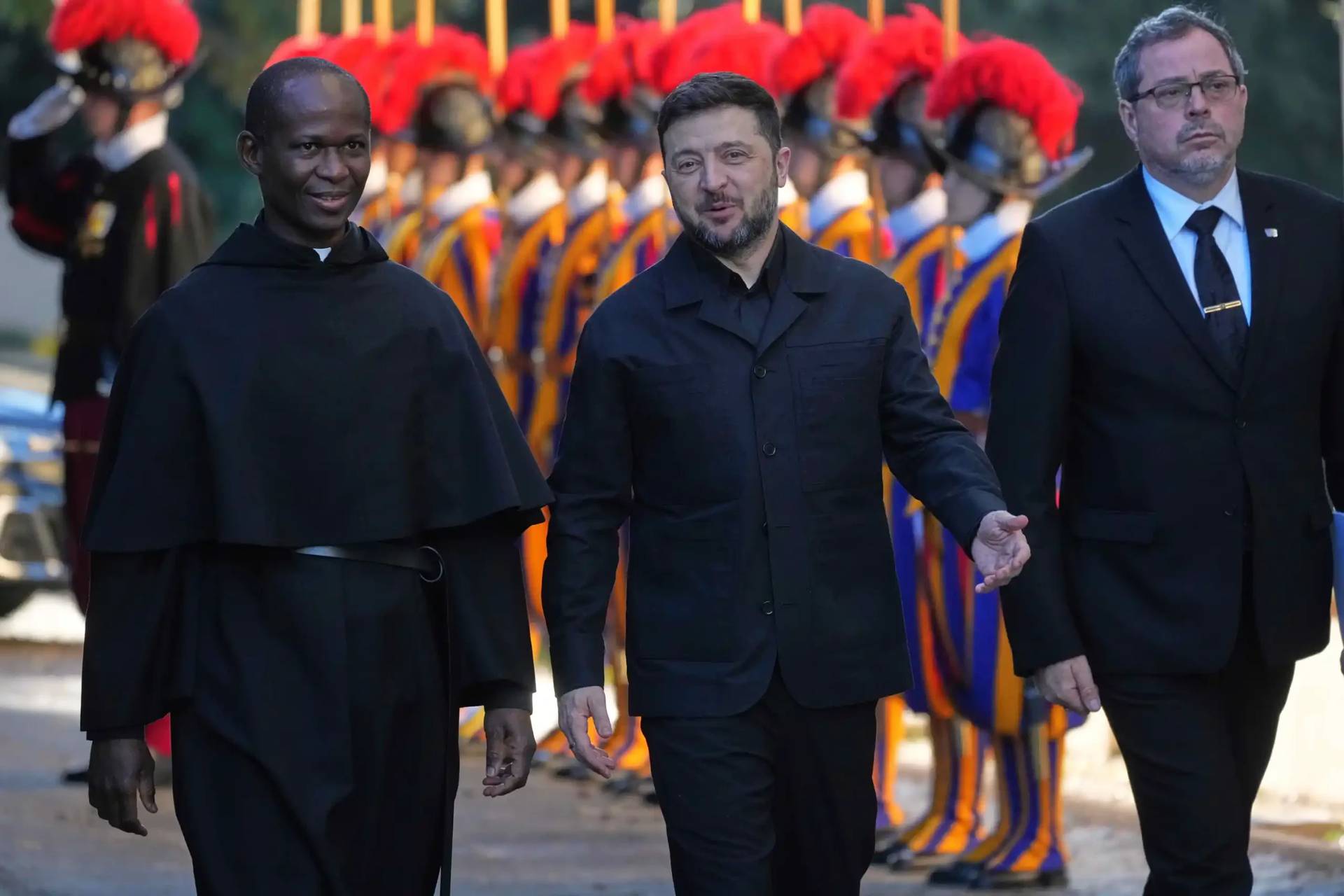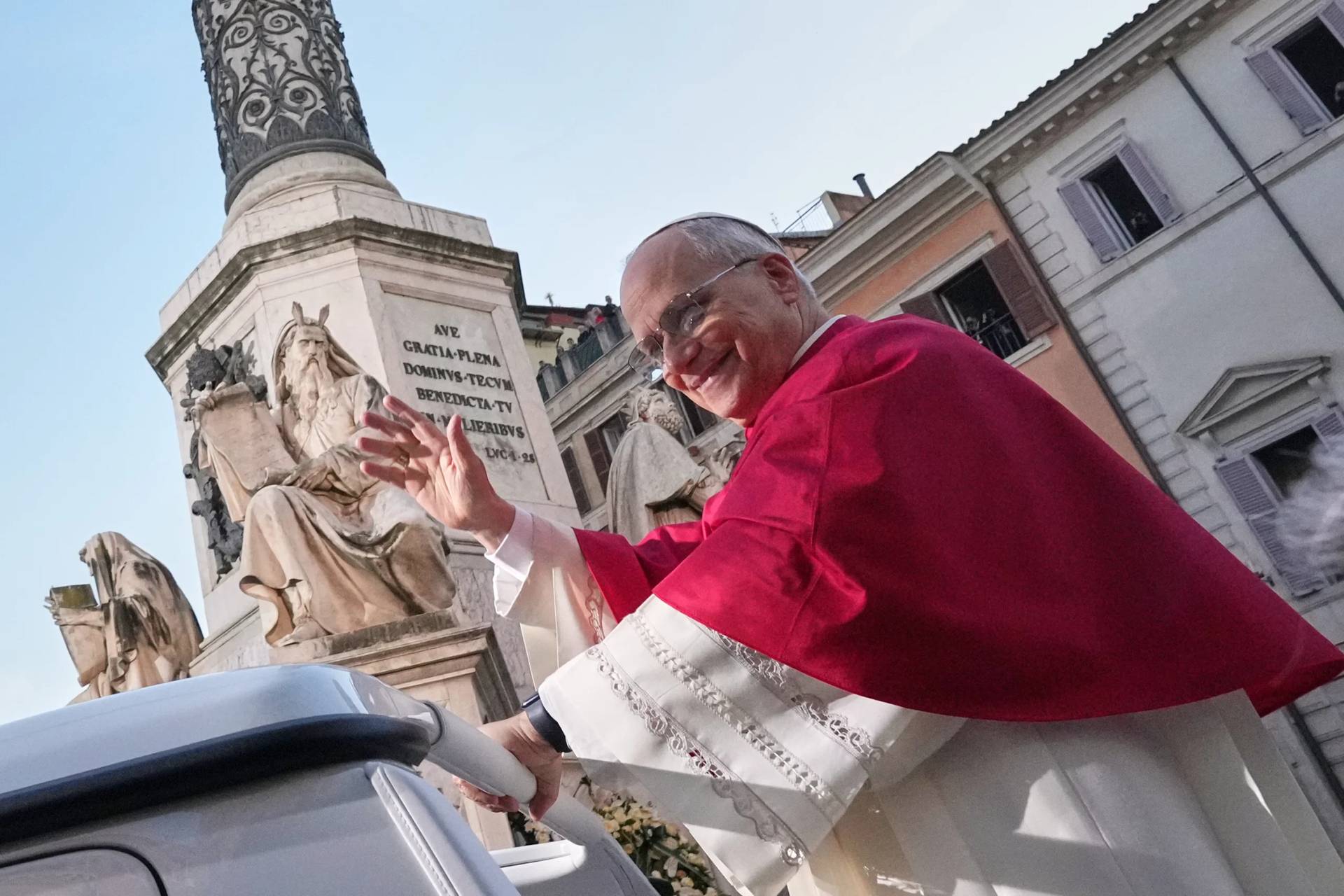ROME – On Sunday, Pope Francis reflected on Jesus’ command to love God above all things, and your neighbor as yourself, saying that it is in the Eucharist that we receive the grace to carry this out.
“God, who is Love, has created us to make us part of his life, to be loved and to love Him, and to love all other people with Him. This is God’s ‘dream’ for man. And in order to accomplish it we need his grace, we need to receive in us the ability to love that comes from God himself.”
For this reason “Jesus offers himself to us in the Eucharist…” the pope said Oct. 29. “In it we receive his Body and His Blood, that is, we receive Jesus in the best expression of his love, when He has offered himself to the Father for our salvation.”
Francis reflected on Sunday’s “short, but very important” Gospel passage from St. Matthew in his brief message before leading the Angelus with around 30,000 people in St. Peter’s Square.
In the Gospel passage, a Pharisee asks Jesus what, among the more than 600 Jewish laws, is the greatest. And Jesus, not hesitating at all, answers: “Love the Lord your God with all your heart, with all your soul and with all your mind. And love your neighbor as yourself.”
The Ten Commandments, which were communicated directly to Moses by God, are a covenant with the people. And in his answer, “Jesus wants to make it clear that without love of God and neighbor there is no true fidelity to this covenant with the Lord,” the pope pointed out.
In answering this question, Jesus is trying to help the Pharisees understand the proper order and importance of things, and how all other laws depend on these two.
“What Jesus proposes on this evangelical page is a wonderful ideal that corresponds to the most authentic desire of our heart,” he said. “In fact, that we have been created to love and to be loved.”
Francis emphasized that we can do many good things, follow all the laws, but if we do not have love it is useless. This is how Jesus lived his life: preaching and performing works always with what is “essential, that is, love.”
“Love gives momentum and fecundity to life and to the journey of faith: without love, both life and faith remain sterile.”
In fact, even if we have known the commandment to love from the time we were children, we must never stop trying to conform ourselves to this law, putting it into practice in whatever situation we find ourselves in, he concluded.
And as we try to live out this commandment to love, we can turn to the Blessed Virgin Mary for help, he said: The Holy Virgin helping us “to welcome into our lives the ‘great commandment’ of love of God and of neighbor.”














